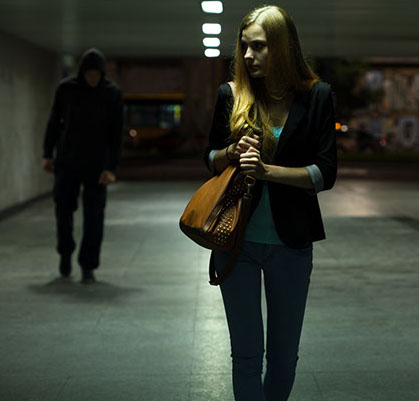
[dropcap]I[/dropcap]n the wake of claims of sexual harassment in Cambridge university, a number of Irish students have come forward with stories of sexual assault and harassment, experienced in Irish universities.
Cambridge University has admitted that it has a ‘significant’ problem with sexual assaults and harassment happening on campus, and have said they need to find a way to combat this problem.
DCU Welfare and Equality officer, Podge Henry notes: “Sexual assaults and harassment should always be taken seriously. It is an issue that is still a major problem in society which of course includes the college cohort.”
One DCU student speaking of her own experience of sexual harassment said: “it happens far too often that women are made feel like they are overreacting when harassed.
“I was on a night out, and I made it clear to a guy that I was not interested. When I profusely said no, and became stern with him, he started to get annoyed and implied I was overreacting to his constant persistence,” she said.
Sexual assaults are not exclusive to third level students. However, alcohol consumption and trend for binge drinking is often blamed.
“Sexual assaults and harassment happen at third level. You’ve got thousands of students, and a lot of the time people have alcohol taken at night, and that adds to it,” Senior Student Support Officer, Deirdre Moloney said.
Moloney spoke about students starting college, experiencing new things and surroundings and still figuring themselves out: “I don’t think we have a huge problem in DCU, but it is a generational thing across the board. At the age group between 18-24, there is a learning experience that people have to go through, and sometimes get it wrong.”
“There’s a huge amount of freedom but young people don’t always have the personal skills to deal with that level of freedom. Boundaries can be pushed but some people don’t know where they end,” Helen Vaughan, a psychotherapist and owner of Maynooth Counselling and Psychotherapy said.
Many universities put procedures in place to help students learn how to deal with a new environment and how to enjoy socialising. Some, such as DCU, take procedures to minimise harassment and assaults happening on campus.
Henry hopes that apps such as ‘SafeZone’ can help: “That and campus security on patrol, reduces the incident numbers on campus. I would also hope that if there ever were such incidents that students would feel safe enough and comfortable enough to report it through either security, the guards or us at the SU.”
If an assault occurs to a DCU Student, supports are in place: “We ask the student to firstly go see the Doctor or Nurse in the health centre to get checked. At the same time we would ring the Garda liaison officer, and they come and take a statement, but it is the student’s decision if they want to take it further. If it is another student, then they can make the decision whether to take it further within the university, and take it to disciplinary” Moloney said.
While the advice is always to have a back up plan when meeting someone socially one to one for the first time, and always to let someone know where you are going and who you will be with, there are of course instances when assault of sexual harassment can happen regardless of the safeties put in place.
If you or someone you know has been a victim of assault or have been harassed please get in contact with the student advice centre on campus located in the Henry Grattan building: 01-7005165.



